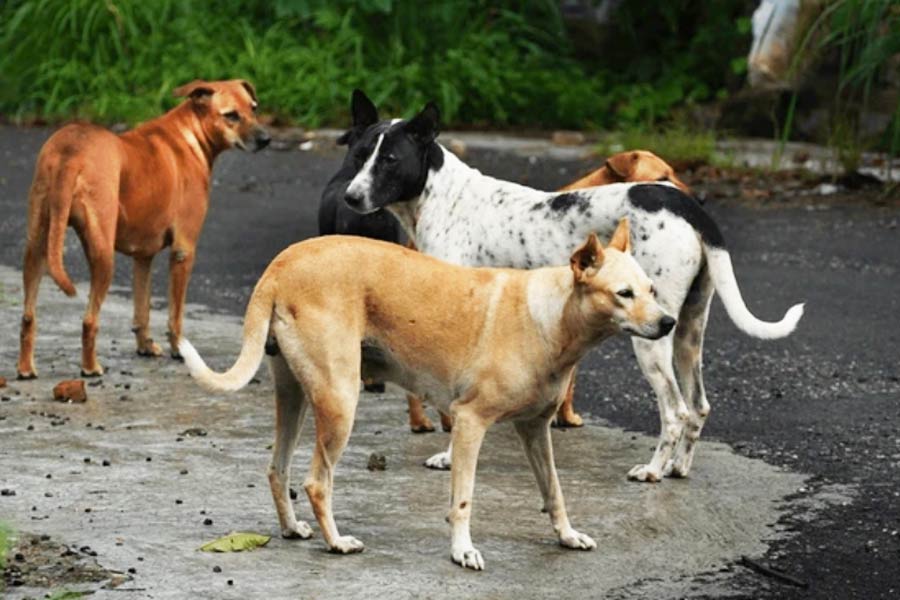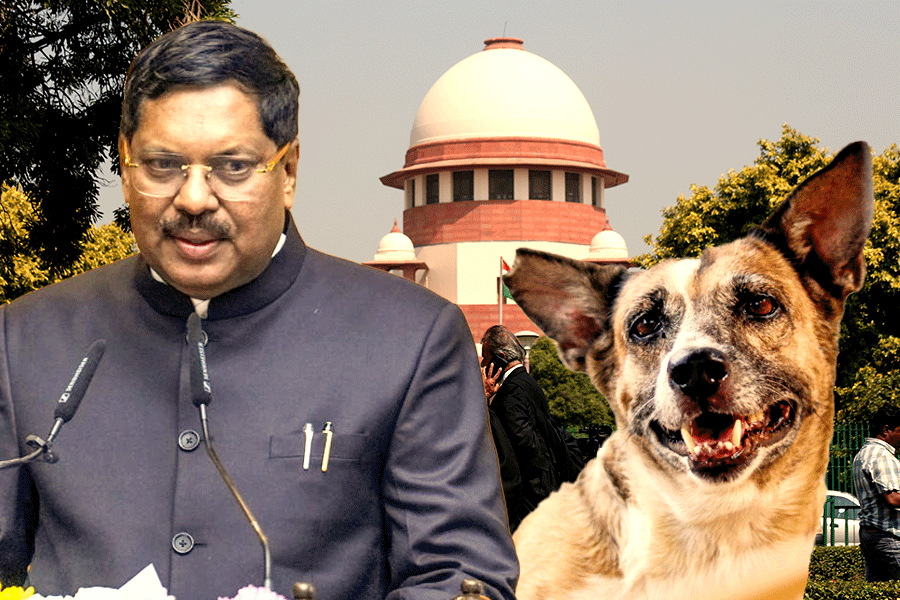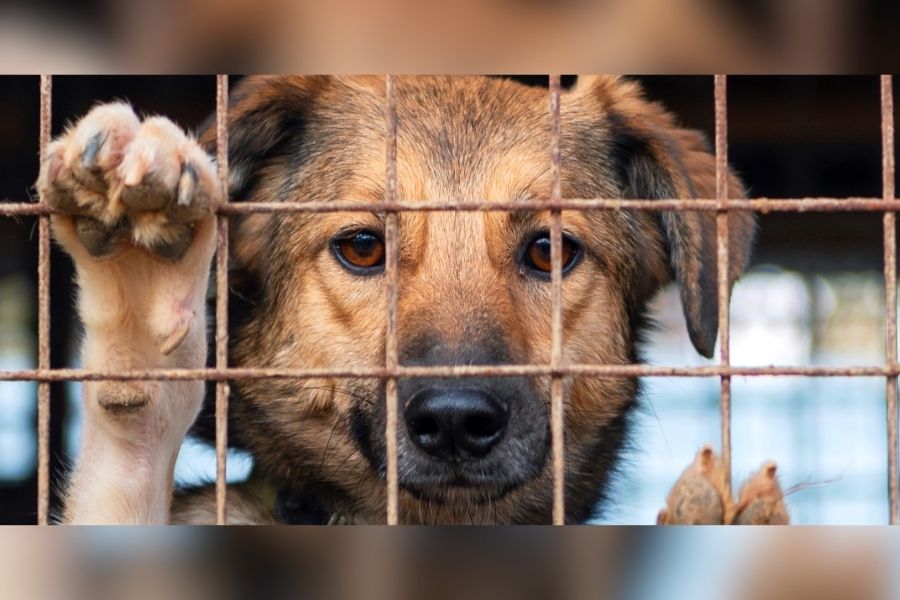The stray dog problem is not unique to Delhi.
As a child, Gariahat resident Kasturi Das was bitten by a stray while riding her cycle. “I was 7-8 years old. Since then, I am terrified of any dog. I get a panic attack every time a dog approaches me,” she recalled. Today, fears like hers are shared by many across Kolkata as the number of dog bite incidents steadily climbs.
Amidst the Supreme Court’s recent order on removal of stray dogs in Delhi, advocate Akash Sharma has filed a public interest litigation (PIL) in Calcutta High Court, highlighting the urgent need to implement the animal birth control (ABC) rule across West Bengal.
The rule, under the Prevention of Cruelty to Animals Act, calls for mass sterilisation and vaccination of stray dogs to ensure coexistence between humans and animals.
Sharma said that he was driven to act after his right to information (RTI) request to the Kolkata Municipal Corporation (KMC) seeking data on dog bite cases, sterilisation and vaccination expenditure went unanswered.
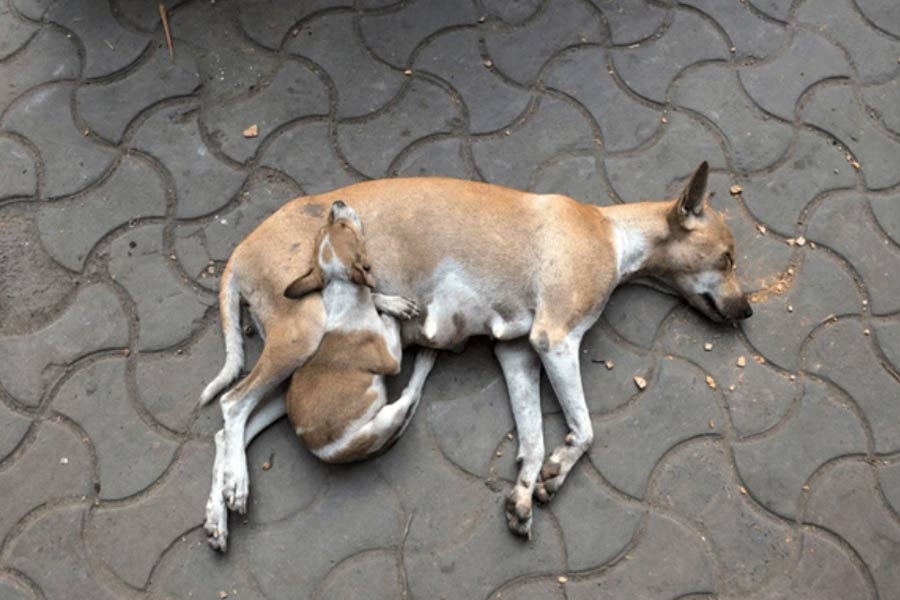
“There are no feeding zones, no shelter, no government-run homes for strays in West Bengal. In 2022, there were 23,000 cases of dog bite in the state, which rose to 48,000 in 2023 and 76,000 in 2024. This shows something needs to be done,” he said, citing Press Information Bureau reports and parliamentary discussions.
Many Kolkata residents say the problem has been growing for years.
In Rajarhat’s Siddha Town Residential, parents worry about the safety of their children. “Some incidents have occurred where children were chased by dogs. We don’t know whether these are vaccinated or not. Even if they are, a dog bite can bleed, hurt and be life-threatening,” said Ananna Debnath Mukherjee, a local resident.
Similar concerns have been raised at Genexx Valley in Joka since 2022. “Dog bite incidents are increasing again. People talk about it, but nothing changes, as there are residents more affectionate towards dogs than humans,” said a resident, requesting anonymity.
The state’s Integrated Disease Surveillance Programme (IDSP) data shows 76,486 dog bite cases in West Bengal in 2024 and 10,264 cases in January 2025 alone. One suspected rabies death was reported in 2024. India recorded over 37 lakh dog bite cases last year, with 54 suspected rabies deaths.
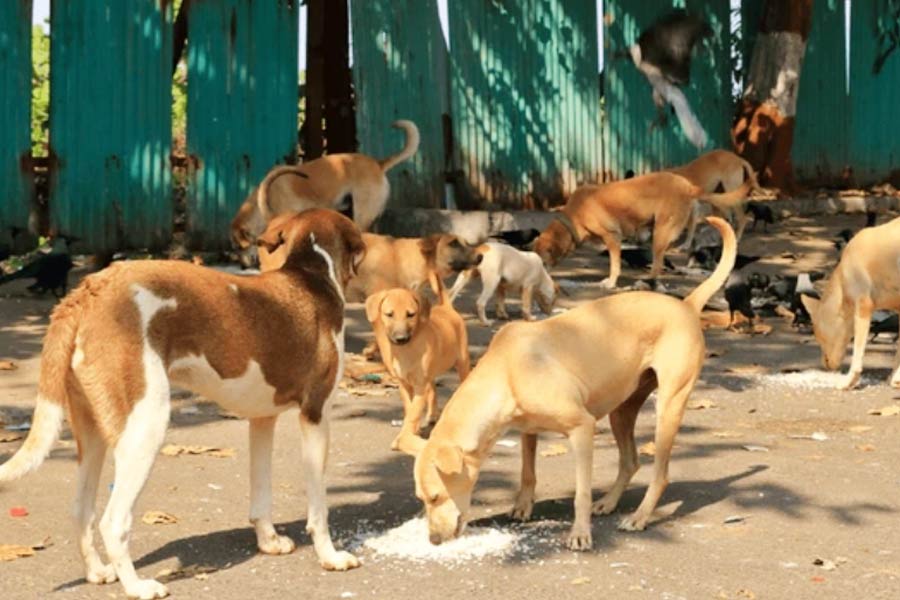
Animal rights activist Titas Mukherjee believes the only humane and scientific approach is organised mass vaccination with government support. “Many NGOs and animal lovers are already vaccinating strays at their own cost. We are trying to maintain the balance. Any dog or animal-related issue should be tackled scientifically and compassionately, involving animal lovers and NGOs,” she said.
When My Kolkata contacted for data, KMC’s mayoral council member for dog bites and rabies, Swapan Samaddar, referred the query to Atin Ghosh, the deputy mayor of Kolkata and head of KMC’s health department, who in turn pointed back to Samaddar. No official statistics were made available.
For Sharma, the PIL is not about removing strays but ensuring they are vaccinated, sterilised and allowed to live in harmony with people. “Everybody should live, whether cats, dogs or rats. My prayer is about maintaining ecological balance in society,” he said.
